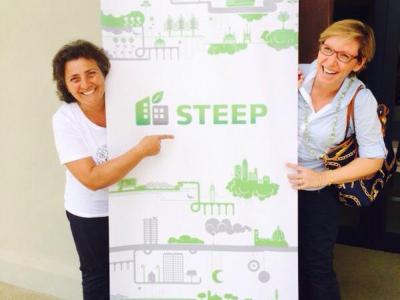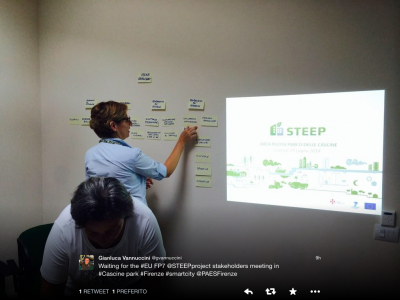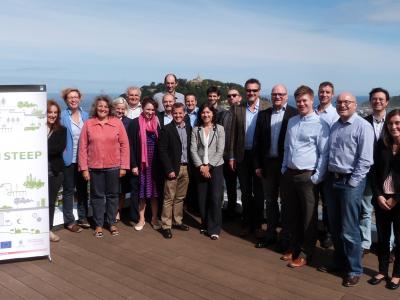STEEP is a FP7 project involving three partner cities (Bristol, Florence and San Sebastian) experienced in sustainable poilcies and with ambitious targets, that aim to become smart cities, understanding and managing complex systems, like energy, with an effective and innovative approach.
For this reason, these cities have decided to join together to advance in the objective of improving efficiency along all the key aspects of their energy value chain, by applying smart city concepts in an integrated manner while learning from each other’s expertise and viewpoint in applying sustainable practices. The partners of the consortium are experts on Energy (FSS, SANSEBASTIAN, TECNALIA and ACCIONA), ICT (BRISTOL, UNIBRISTOL and ARUP) and Mobility (FLORENCE, SPES and ATAF).
To get the proposed objectives STEEP project created a process model based on systems thinking for district energy master planning, which has been applied to 3 city districts to better understand the systems impacting upon energy use and the interventions which could be taken to meet the ambitious energy and carbon targets. These models have been enriched and validated through open innovation methodologies applied with the stakeholders. The learning obtained from the process model for district energy master planning, has then been applied at the city level. This was the basis for the development of comprehensive Smart City Plans. With the knowledge gathered in this process, SPES developed an open-source methodology for integrated Smart City Plans and a list and calculation methodology of Key Performance Indicators for the monitoring of Smart City Plans.
The main STEEP results were:
- Three comprehensive Smart City Plans which take into account all relevant actors in the energy value chain.
- An open-source knowledge exchange, collaboration and visualisation ICT platform to be reused in the future to exchange information on the implementation and monitoring of the Smart City Plans.
- An open-source, transferrable methodology for developing systems-thinking based city models and Smart City Plans and their screening.
The duration of the project has been 2 years and required an EC contribution of 2.197.398 euros.




